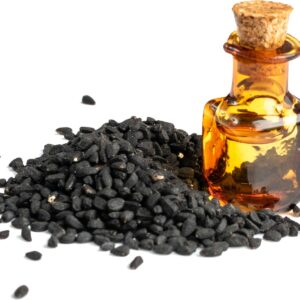Blog
Chronic Inflammation: The Hidden Driver Behind Modern Diseases
What Is Chronic Inflammation, and Why Does It Matter?
Inflammation is a natural immune response designed to protect the body from infection or injury.
When exposed to a virus or wound, the immune system releases immune cells and chemical messengers to heal the damage—this is called acute inflammation, and it’s both necessary and temporary.
In contrast, chronic low-grade inflammation is a long-lasting immune activation that persists without a clear trigger.
It may silently damage tissues and organs over time, making it a root cause of many chronic diseases such as:
- Type 2 diabetes and insulin resistance
- Cardiovascular diseases
- Autoimmune disorders
- Alzheimer’s, anxiety, depression
- Cancer
- Gut disorders and joint inflammation
Signs and Symptoms of Chronic Inflammation
Chronic inflammation often goes unnoticed at first but may show through vague or persistent symptoms such as:

Physical Symptoms:
- Ongoing joint or muscle pain
- Constant fatigue
- Sleep issues or insomnia
- Unexplained swelling or heaviness
Neurological and Emotional Symptoms:
- Mood swings, depression, or anxiety
- Difficulty concentrating
- Brain fog or memory decline
Digestive Symptoms:
- Bloating, gas, constipation, or diarrhea
- Frequent acid reflux
- Gut dysbiosis or microbial imbalance
- Leaky gut syndrome
Immune and Metabolic Clues:
- Increased belly fat (visceral fat)
- Elevated blood sugar or insulin resistance
- Frequent infections or slow wound healing
- Skin issues: eczema, psoriasis, rashes
Common Causes of Systemic Inflammation
- Poor diet: sugar, gluten, processed foods, and inflammatory oils
- Sedentary lifestyle and physical inactivity
- Visceral fat: belly fat releases inflammatory compounds
- Chronic stress: elevates cortisol, which fuels inflammation
- Poor sleep quality
- Leaky gut syndrome
- Environmental toxins: pollution, heavy metals, pesticides
Natural Approaches to Reduce Chronic Inflammation
Intermittent Fasting: A Powerful Reset for the Immune System

One of the most effective natural strategies to reduce inflammation is intermittent fasting.
Studies show that time-restricted eating activates a process called autophagy, where the body clears out damaged cells and inflammatory debris.
Key benefits of fasting:
- Reduces insulin resistance
- Lowers inflammatory markers like CRP and IL-6
- Decreases visceral fat
- Enhances gut integrity and microbiome balance
- Regulates stress hormones like cortisol
Important note: fasting must be paired with a clean, anti-inflammatory diet. Breaking a fast with processed or sugary foods negates its benefits.
Top 11 Anti-Inflammatory Foods to Include in Your Daily Diet
1. Berries (Blueberries, Strawberries, Raspberries, Pomegranate)

Rich in anthocyanins, powerful antioxidants that reduce inflammation and support immune function.
2. Leafy Greens (Spinach, Arugula, Parsley, Cilantro)
Packed with chlorophyll, folate, and vitamin K, they promote detoxification and cellular repair.
3. Fatty Fish (Salmon, Sardines, Mackerel, Anchovies)
High in omega-3 fatty acids, which fight neuroinflammation and support heart and brain health.
4. Avocado & Extra Virgin Olive Oil
Contain monounsaturated fats that reduce bad cholesterol and systemic inflammation.
5. Cruciferous Vegetables (Broccoli, Cauliflower, Cabbage)
Provide glutathione and sulfur, key in liver detox and immune modulation.
6. Garlic
Contains allicin and quercetin, which help reduce gut inflammation and support immune defense.
7. Ginger
Contains gingerol, an anti-inflammatory compound that also aids digestion.
8. Fresh Turmeric
High in curcumin, a potent anti-inflammatory and antioxidant—best consumed as tea or fresh shots.
9. Chia Seeds
Rich in fiber and omega-3s, they promote gut health and reduce inflammation naturally.
10. Green Tea
Loaded with EGCG, a powerful antioxidant known to suppress inflammatory signaling in the body.
11. Black Seed (Nigella sativa)

Contains thymoquinone, a bioactive compound shown to reduce inflammation in autoimmune, gut, and respiratory conditions.
Can be taken ground, mixed with honey, or as a small amount of oil.
How to Build an Anti-Inflammatory Lifestyle
- Start your day with green tea or a leafy green smoothie
- Add turmeric, ginger, garlic, and black seed to your meals
- Snack on berries regularly
- Include chia seeds in your breakfast
- Eat fatty fish 2–3 times per week
- Stay active and prioritize quality sleep
- Practice intermittent fasting responsibly
Final Thoughts
Chronic inflammation isn’t a condition that appears overnight but rather a long-term imbalance that silently fuels disease.
By adjusting your lifestyle, optimizing your diet, and using tools like fasting and targeted foods, you can naturally reduce inflammation and prevent disease progression.
If you need more details about a personalized, tailored full SIBO/IBS gut healing protocol, follow the link below and subscribe:
If you need more details about how to manage and treat chronic inflammation and fight the root cause of all diseases, watch the full episode below on Dr. Fajer AlJumairi’s YouTube Channel:

